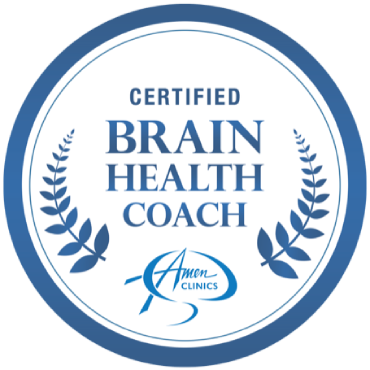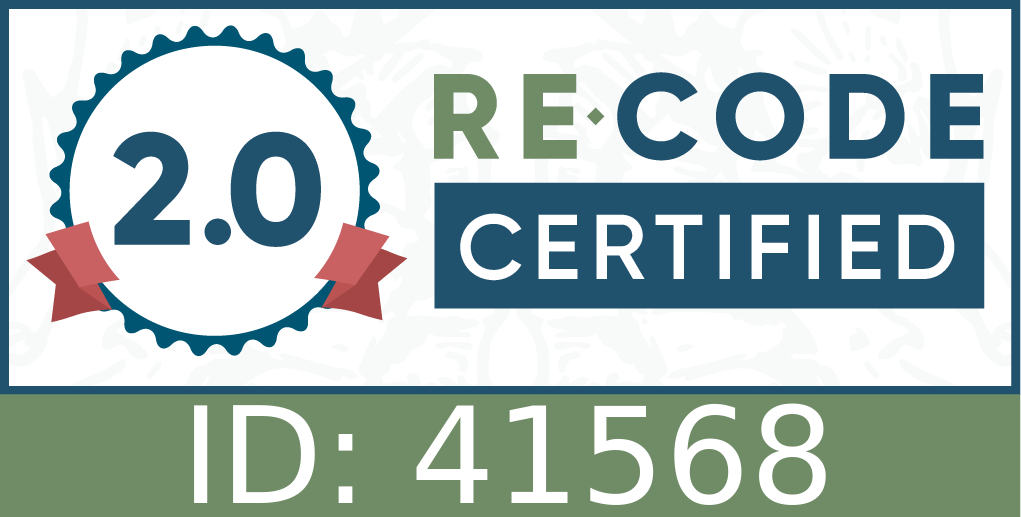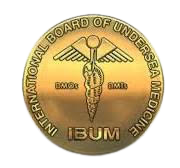Bredesen Protocol
“We are seeing that people with cognitive decline can, and do, get better. – Dale Bredesen, MD
Dr. Dale Bredesen’s Journey
Dr. Dale Bredesen has been a neurologist for over 40 years, spending the first 25 years of his career looking for ‘the silver bullet’ for Alzheimer’s, which clearly never came. Even though some new medications have been approved, their impact on people with Cognitive Decline or Dementia is minimal.

Changes in Cognitive Performance
When shifting his research to a multi-systems approach to dementia, Dr. Bredesen mapped out what he refers to as “the roof with 36 holes.” His protocol, now referred to as ReCODE for reversing cognitive decline symptoms, and PreCODE for preventing dementia (mostly appropriate to those in their 30’s & 40’s), has, since he started training health care professionals in 2016, including Jo, helped thousands of patients reverse their cognitive[ issues. In fact, 84% of participants notice stabilisation and/or improvement within 6 months of committing to the program, which continues over time.
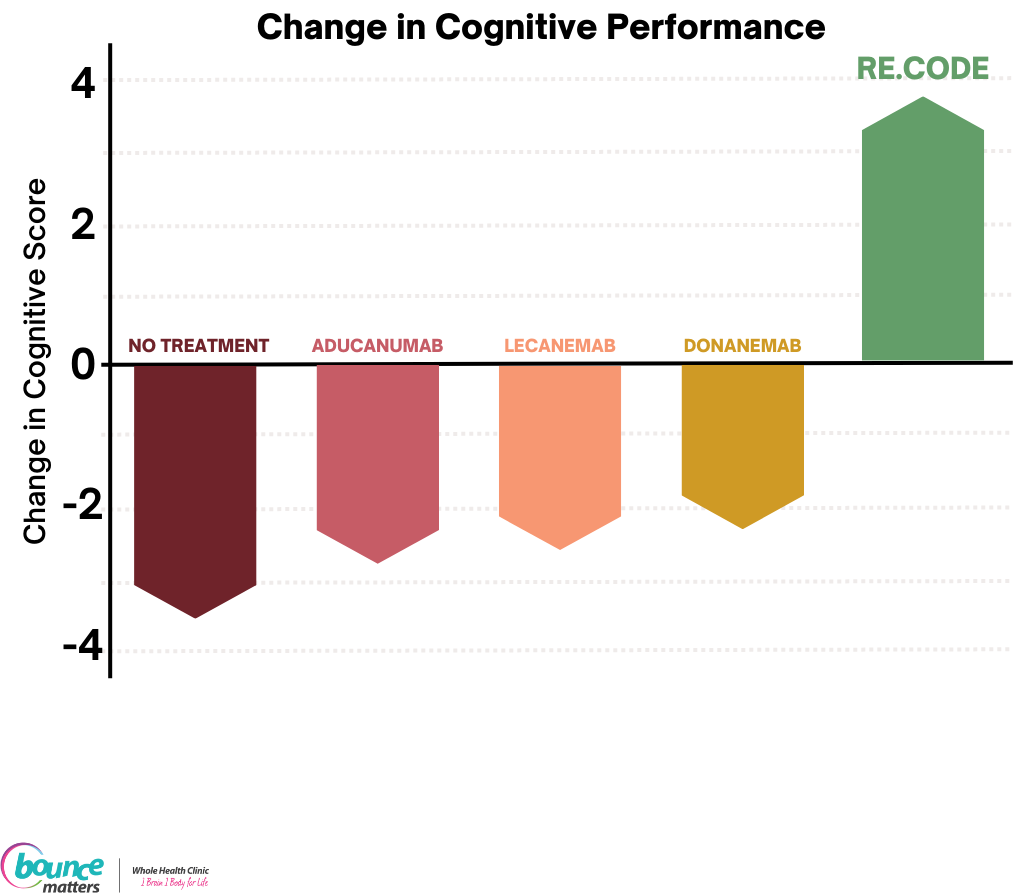
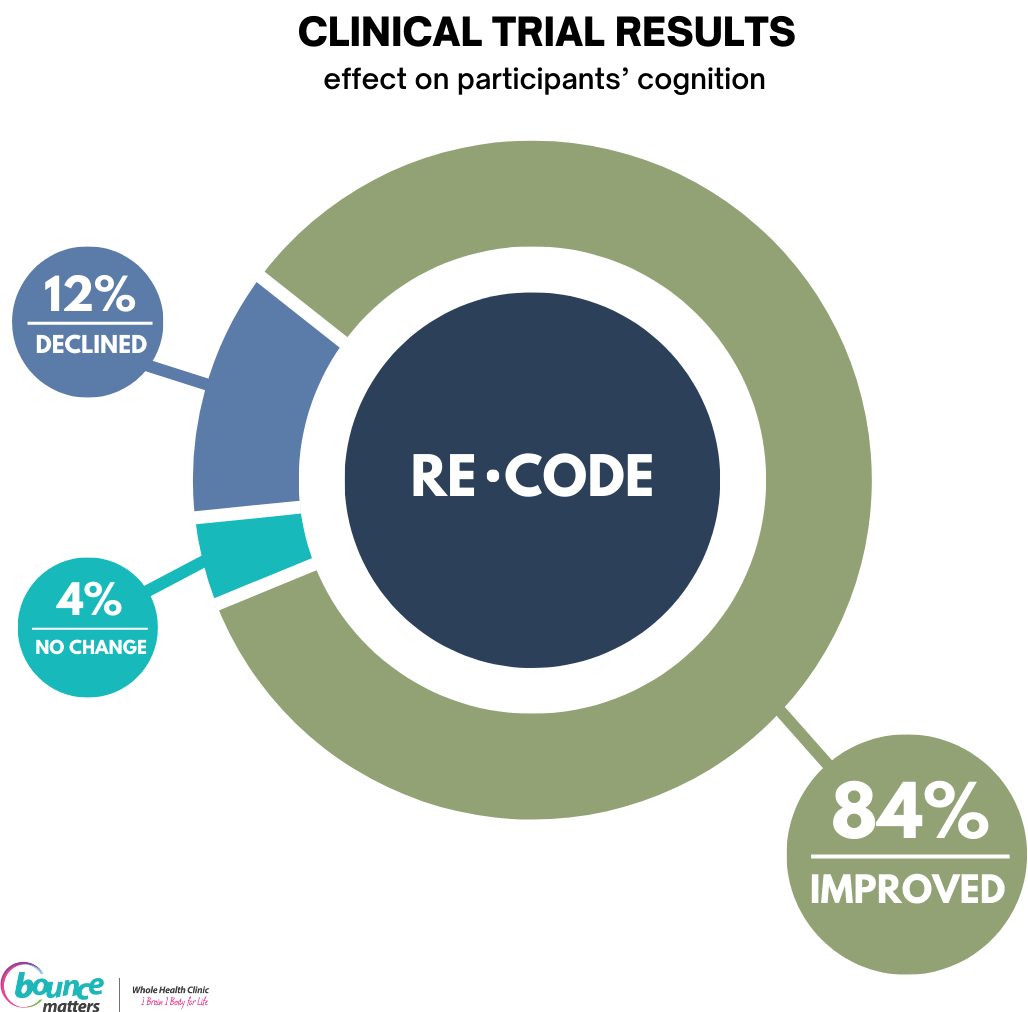
A Multi-System Approach
This systems-based approach, targeting multiple disease contributors, includes diet, inflammation, stress management, exercise, heavy metals and chemical toxins, poor sleep, poor dental health, nutritional deficiencies, chronic infections, and gut dysbiosis. This approach aims to reverse memory loss and restore the ability to think and emotionally connect with loved ones. When you imagine a roof with 36 holes, plugging a few won’t make much difference, but addressing 10-20 holes can work wonders. Our role is to identify the most critical imbalances and underlying causes and guide you through how to improve and treat these areas. Everything needs to be considered, and the more ‘holes’ we can close, the greater the outcome we can achieve.
Identifying the “Holes” in Cognitive Health
Eliminating & clearing out various toxins
Optimising hormones if needed
Optimising diet – anti-inflammatory, nutrient-dense, “pegan,” possibly ketogenic
Addressing pathogens (e.g., Gastrointestinal infections and dysbiosis)
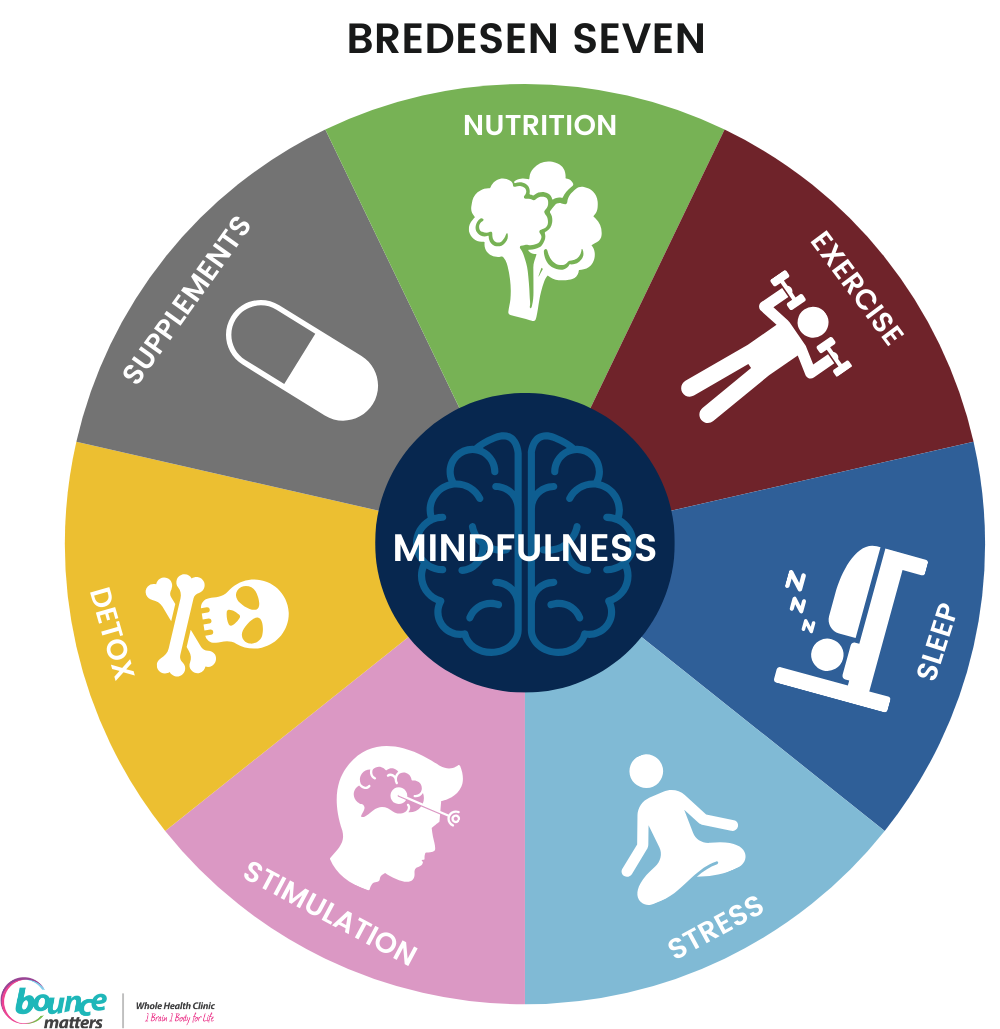
Optimising biochemistry with nutrition (e.g., avoiding high homocysteine, low vitamin D, low vitamin B12, low magnesium, etc.)
Reversing insulin resistance
Optimising sleep
Regular and appropriate exercise
Understanding Alzheimer’s and Cognitive Decline
Alzheimer’s development or cognitive decline can be triggered by multiple factors. The processes that build and maintain neurons are counterbalanced by those that break them down. These processes are a natural part of everyone’s life; it’s the balance that shifts. This disequilibrium sets off a cascade toward either cognitive health or decline. Rebalancing these processes necessitates significant effort and change, not just for today and next month, but for the long term, for the rest of your life.
The 6 Main Causes of Alzheimer’s Dementia
Inflammatory (Type 1 – 'HOT')
Occurs with ongoing infections like gut pathogens, Lyme disease, chronic sinusitis, or chronic cold sores, as well as non-infectious inflammation like autoimmune conditions or type 2 diabetes. The body releases beta-amyloid (a key Alzheimer’s marker) as part of its defense against infections.
Atrophic (Type 2 – 'COLD')
Results from the withdrawal of ‘trophic’ support, which includes stimulating or building molecules like hormones, such as estrogen. The sudden onset of menopause can significantly contribute to this type. In 2016, dementia overtook heart disease as the leading cause of death among Australian females (ABS, 2017). Other vital hormones include testosterone, thyroid hormones, nerve growth factor (NGF), and brain-derived neurotrophic factor (BDNF).
Glycotoxic (Type 1.5 – 'SWEET')
Arises from insulin resistance, prediabetes, or type 2 diabetes. Two main processes are at play: excess glucose leading to inflammation through advanced glycation end products (AGEs), and trophic withdrawal due to insulin resistance, both damaging for brain health.
Toxic (Type 3 – 'VILE')
Results from toxin exposure, including heavy metals, general anaesthetics, mycotoxins (mould), chronic infections (e.g. HSV-1 cold sore herpes virus), Lyme disease, etc. Mycotoxins can lead to Chronic Inflammatory Response Syndrome (CIRS), where the body struggles to process biological toxins produced by infections or present in the environment.
Vascular (Type 4 – 'PALE')
Linked to chronic vascular disease, characterised by poor blood flow through blood vessels, damage to vascular linings, often influenced by high homocysteine, chronic high blood pressure, and newly published data showing Covid infection can also trigger this issue.
Traumatic (Type 5 – 'DAZED')
Trauma, such as from accidents, injuries (e.g. TBI – at any level), chronic concussion injuries (often undiagnosed), and CTE.
Reversing Cognitive Decline since 2016!
We’ve been running ReCODE / the Bredesen Protocol since 2016. Each patient’s program is personalised and tailored to optimise their cognitive function, at whichever stage they may be. We start with a Cognoscopy and go from there!
At Bounce Matters, we’re here to guide you through the journey of optimising brain function and health, plus we can offer hope for reversing cognitive decline. Contact us to learn more about the Bredesen Protocol and our programs. Start your path to cognitive rejuvenation and regeneration today.
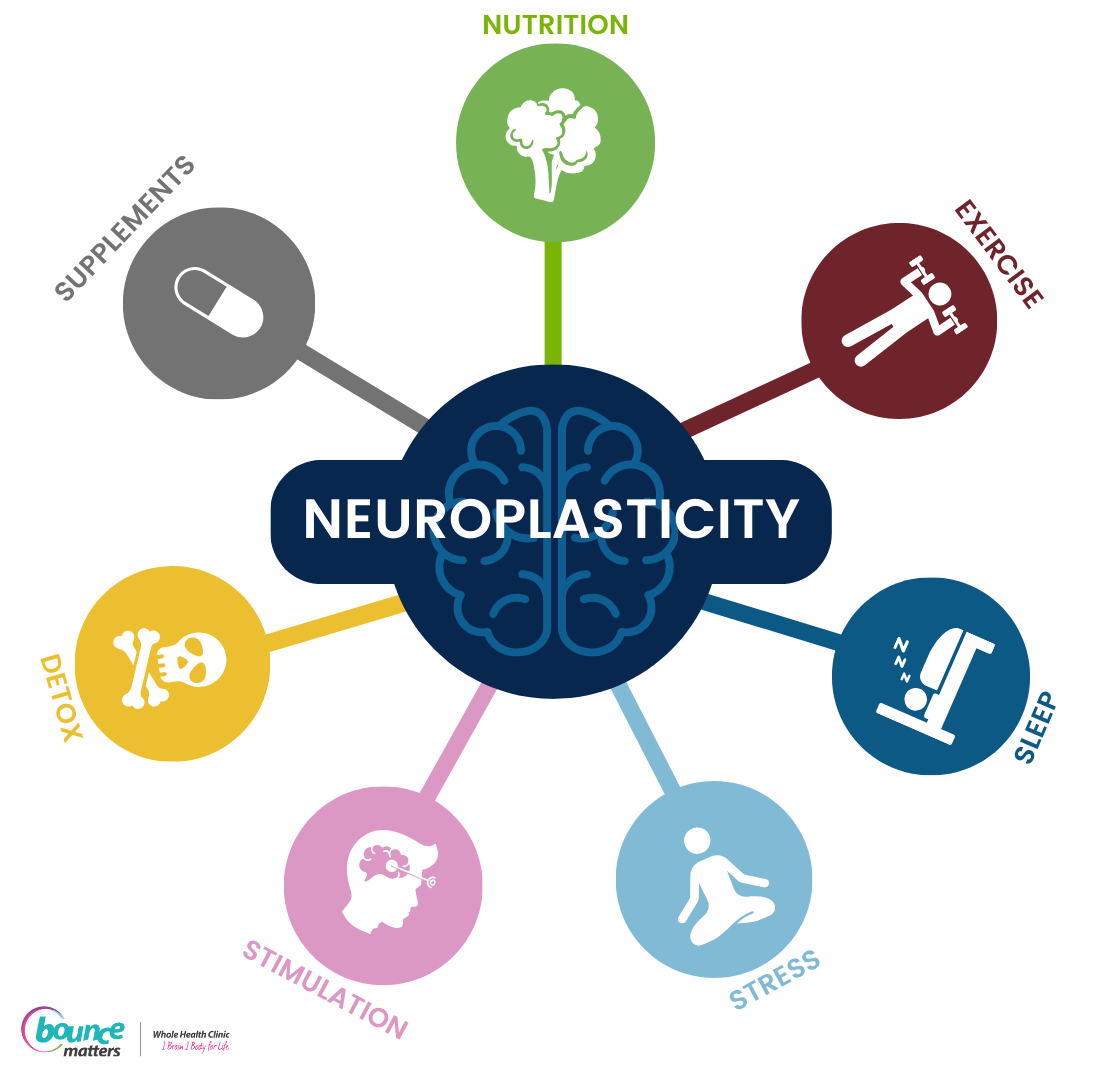
Get Started on Your Cognitive Health Journey
Reclaim your brain function with the Bredesen Protocol.
Book a Discovery Call
Recommended Readings
Brain Health Books
- The End of Alzheimer’s - Dr Dale Bredesen
- Memory Rescue - Dr Daniel Amen
- Breaking Alzheimer’s - Dr Dayan Goodenowe
- When Brains Collide - Dr Michael Lewis
- Concussion Rescue - Dr Kabran Chapek
- Oxygen Under Pressure - Dr Jason Sonners
- The Oxygen Revolution - Dr Paul Harch
- The Ultimate Guide to Red Light Therapy - Ari Whitten
- A Statin Free Life - Dr Aseem Malhotra


